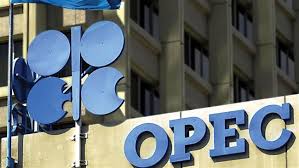Alwaght- Organization of the Petroleum Exporting Countries (OPEC) and non-OPEC oil producers have refused to agree on a cap that would push up oil prices, which have been collapsing over the past year.
At the final press conference on Sunday evening in Doha, Qatar's energy and industry minister, Mohammed bin Saleh al-Sada, said countries at the talks would “need more time” for consultations, before attempting to make a deal, likely at the next scheduled talks in June. Recently, oil prices have crept up from below $30 to levels just above $40 on Friday.
Reports say the meeting was postponed after the Saudi regime representative became stubborn and demanded that all OPEC members to take part in the freeze.
The Saudi regime had earlier insisted on excluding Iran from the talks because Tehran had refused to stabilize production, seeking to regain market share after the lifting of Western sanctions against it in January.
Delegates attending the talks said the Saudi regime had in effect torn up an earlier draft of the deal as it decided it could not be party to an agreement that would give Iran any leeway.
Iranian Petroleum Minister Bijan Zangeneh did the talks between OPEC and non-OPEC producers in Doha.
Iran has insisted that it plans to regain its lost share in world oil market following the removal of unjust sanctions against the country over its nuclear program and has raised this issue in bilateral and multilateral meetings with oil and energy ministers of OPEC and non-OPEC states.
OPEC said on Wednesday that Iranian crude production in March was 3.3 million barrels per day (mb/d), up from 2.9 million in January.
Iran has maintained that it is targeting production of 4 mb/d in the new Iranian year (started March 20).
In Europe, the Iranian crude has reportedly found its way into France and Spain since anti-Iran sanctions were lifted on January 16 as part of Tehran’s nuclear agreement with the P5+1 group of countries in July 2015.
"With Iran, we respect their position and through further consultation, we don't know how their future will unroll," Qatar's oil minister said. "It was a sovereign decision by Iran.”



























